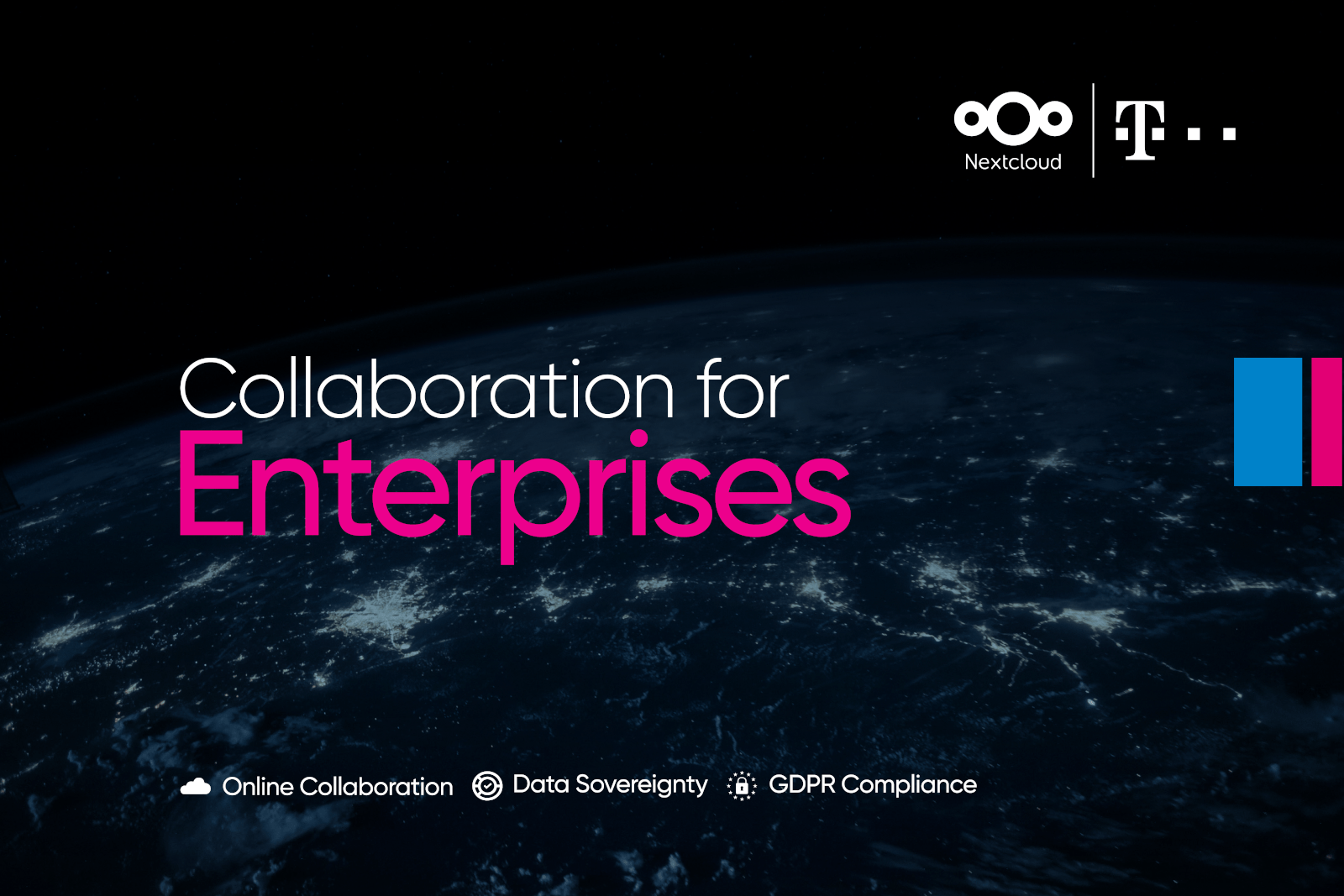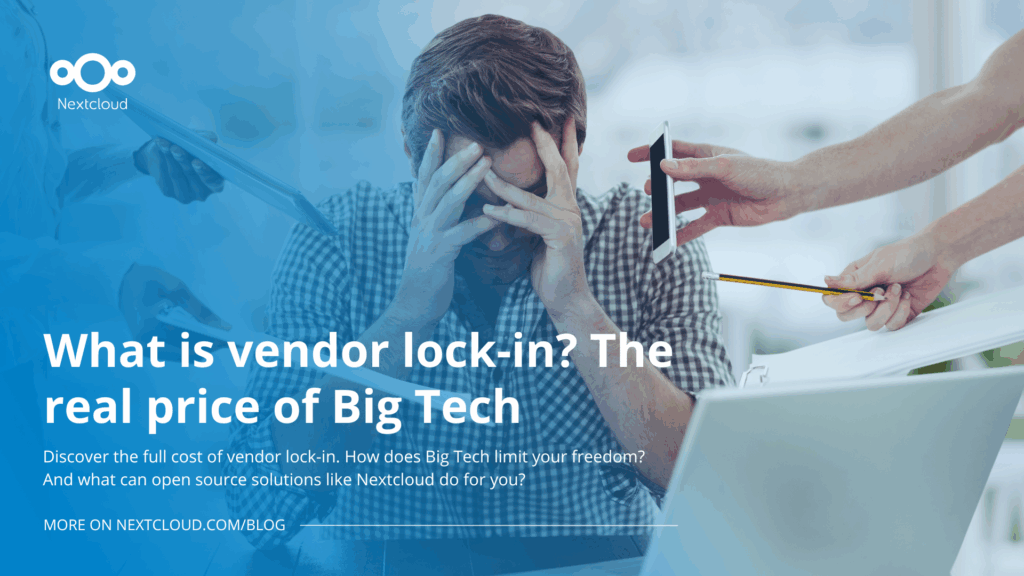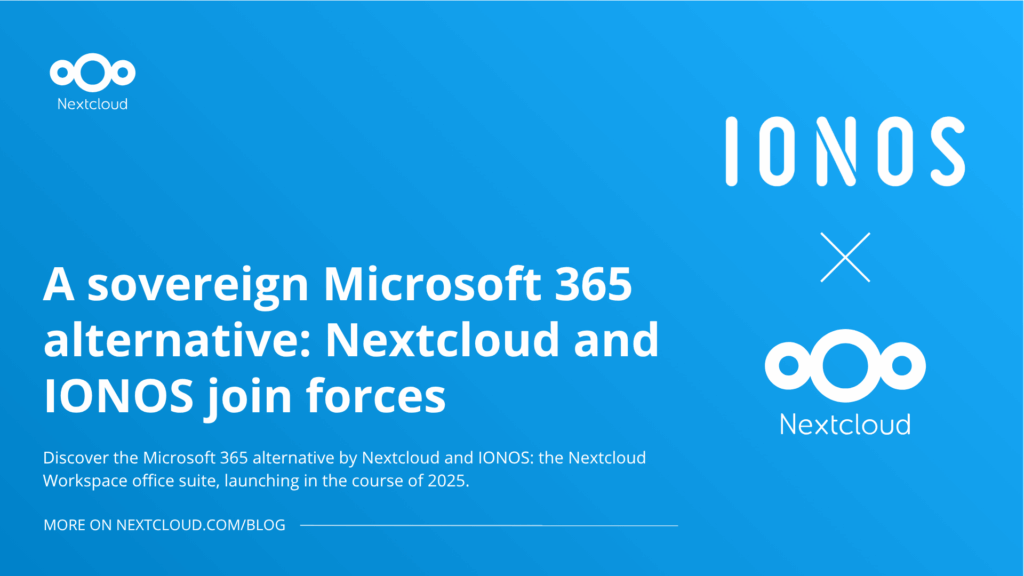Deutsche Telekom and Nextcloud offer Collaboration Platform for European Data Sovereignty and GDPR compliance
We are very excited to announce a collaboration with Deutsche Telekom, Europe’s largest telecommunications company! Both Deutsche Telekom and Nextcloud GmbH support the GAIA-X initiative for building a data infrastructure based on European standards. Data on the joint collaboration platform never leave strict German jurisdiction and users do not have to worry about data compliance issues. With the quickly growing demand for online productivity technologies that preserve the digital sovereignty of their users and a European-wide push for technology providers to get together and deliver those, the joint offering provides the scaleable and comprehensive digital collaboration space businesses, educational organizations governments need to maintain productivity during the Covid crisis and after.
The managed solution is based on Nextcloud hub, delivering on the needs of the collaboration of modern organizations with secure data and document exchange with online editing capabilities, chat and video conferencing as well as task and calendar management. Users can access data through the browser, desktop and mobile application interfaces and data is hosted in Deutsche Telekom’s’ most modern data centers in the EU to guarantee the scalability, reliability and security enterprises require.
Hagen Rickmann, Managing Director Business Customers at Telekom Deutschland:
2021 will be a year of rebuilding our economies and the second wave of Covid-19 has further accelerated the need for remote collaboration, with many employees working from home. At the same time, the increase frequency of digital attacks and risks from privacy violations have increased awareness of security and digital sovereignty. There is a clear demand from organizations and policy makers for better protection of customers’ data, more transparency around security and data storage and respect for privacy from cloud vendors. In response, Telekom and Nextcloud have partnered up to provide an open source, 100% EU hosted, transparent and privacy respecting collaboration platform.
Solution based on Open Source
Deutsche Telekom, as a trusted partner for a broad variety of leading ICT services from a single source, serves any kind of organization with a resilient cloud platform as well as individual build and run management with fixed service templates and price schemes and a rewarded service model.
The Open Source nature of the Nextcloud Hub platform gives customers unprecedented control and flexibility compared to typical Saas offerings, enabling deep integration in existing infrastructure as well as extension and adaption of the product. The use of open source and open standards also ensures transparency, offering customers and third parties the ability to verify the functionality and security of the product.
Says Frank Karlitschek, CEO and Founder of Nextcloud GmbH:
With more and more European firms, government organizations and educational institutes using cloud services we see a constantly growing demand for European data sovereignty. In a data-driven economy we need platforms that guarantee our sovereignty to and innovation and develop new business models. Together with Deutsche Telekom Nextcloud offers a credible alternative with major benefits in terms of management by trust, scalability and adaptability.
The GDPR-compliant, the managed platform is available for immediate deployment for customers. Find the offering by Telekom on their website: https://open-telekom-cloud.com/en/solutions/digital-workplace










